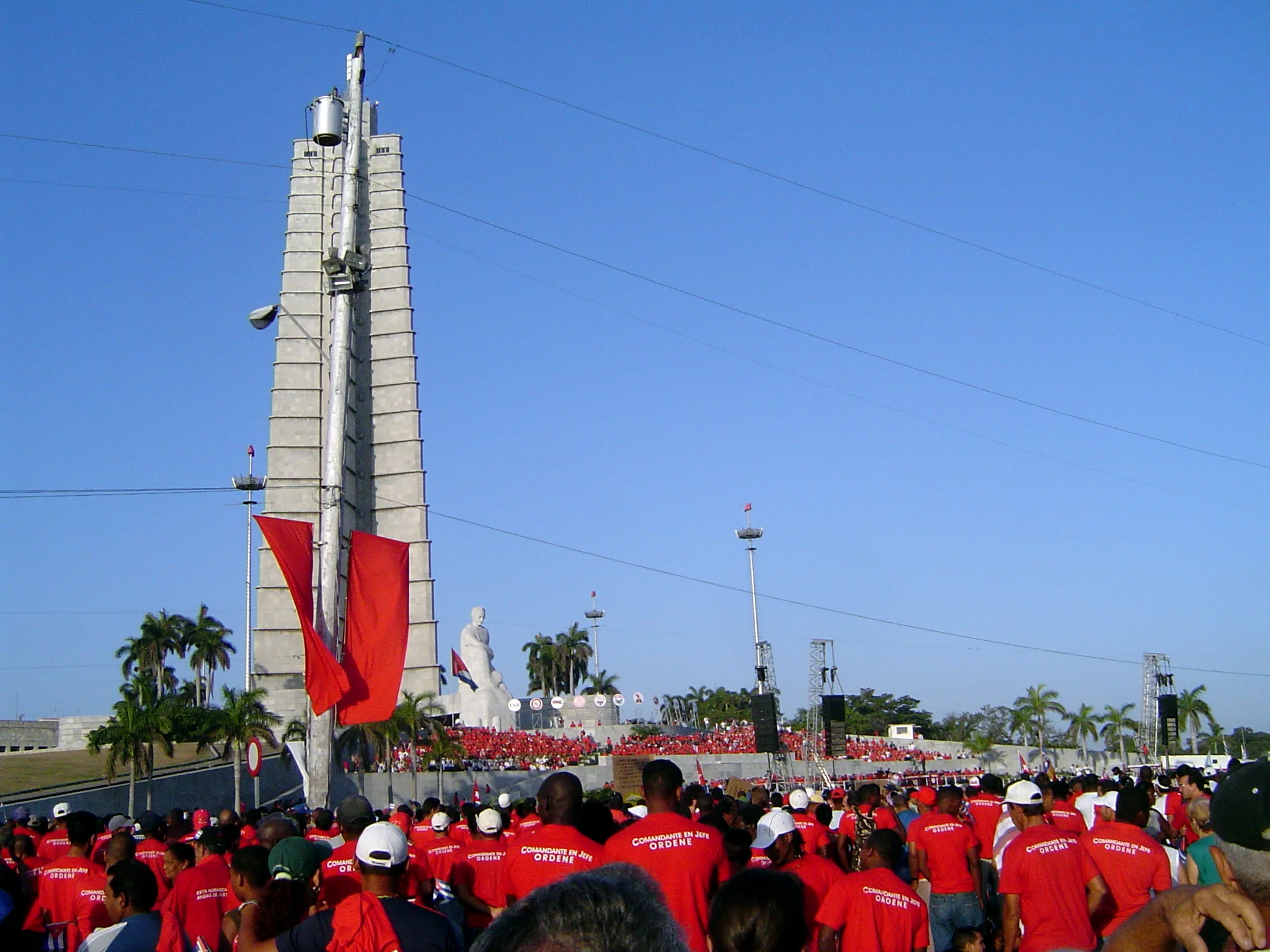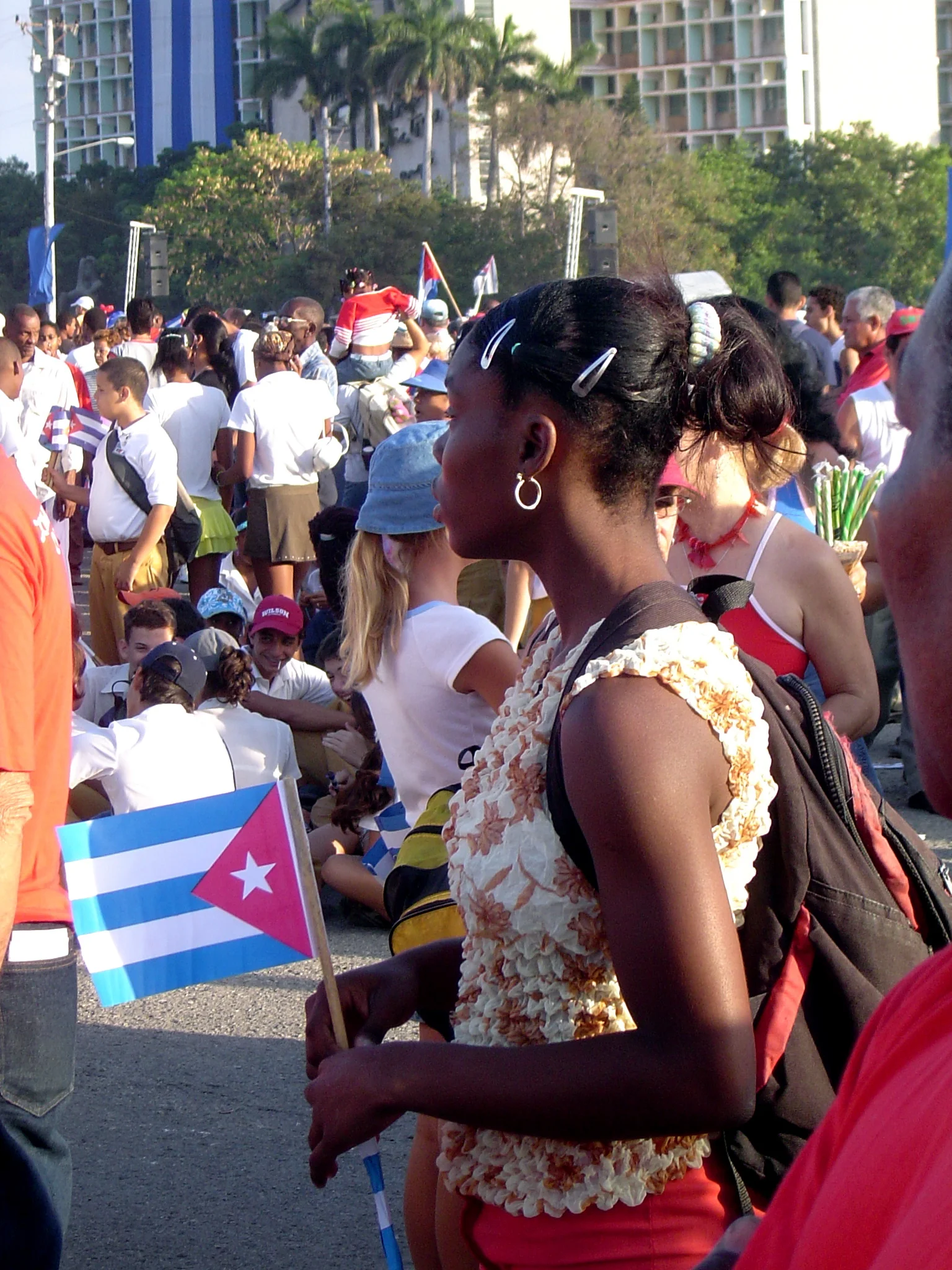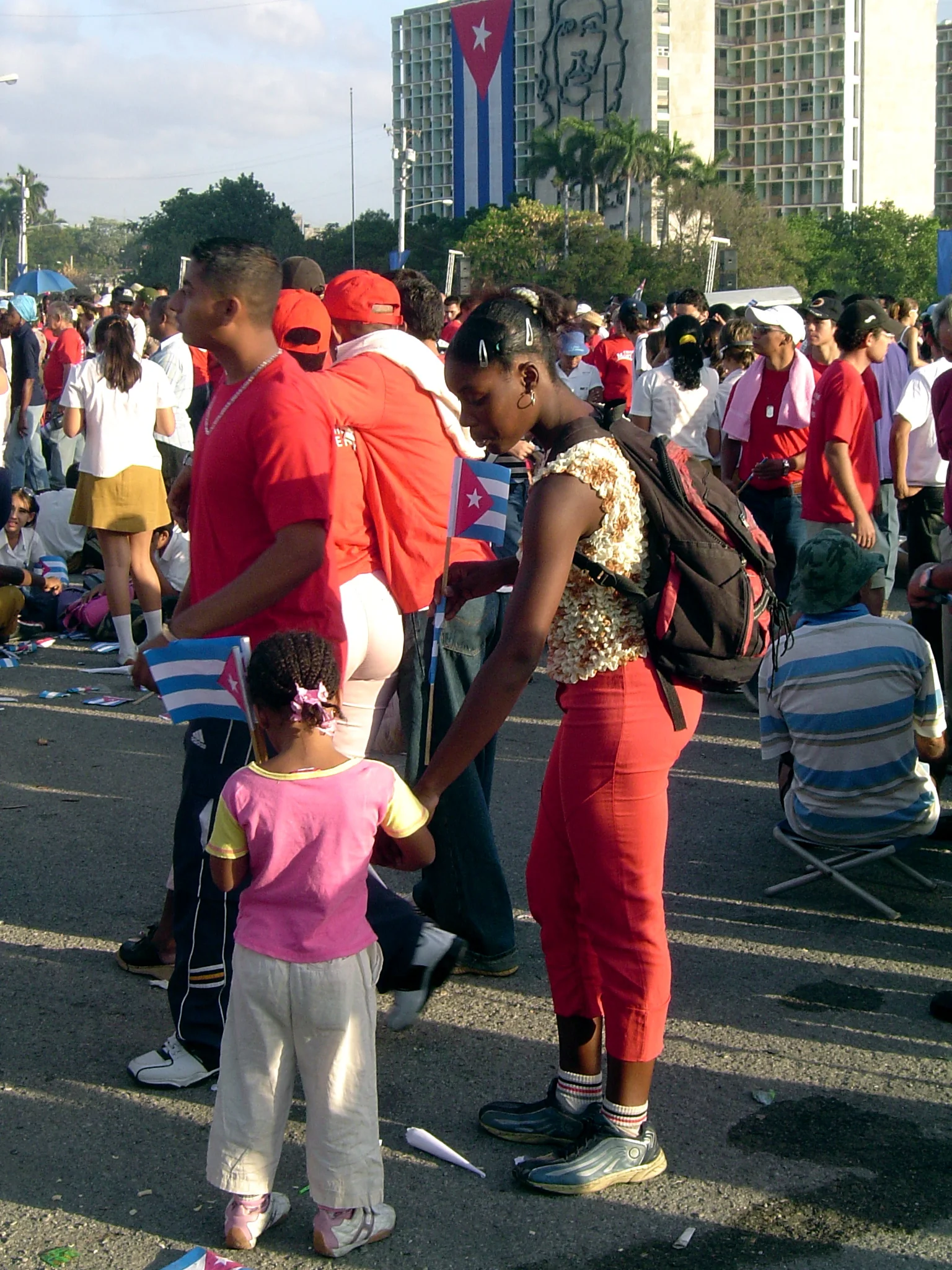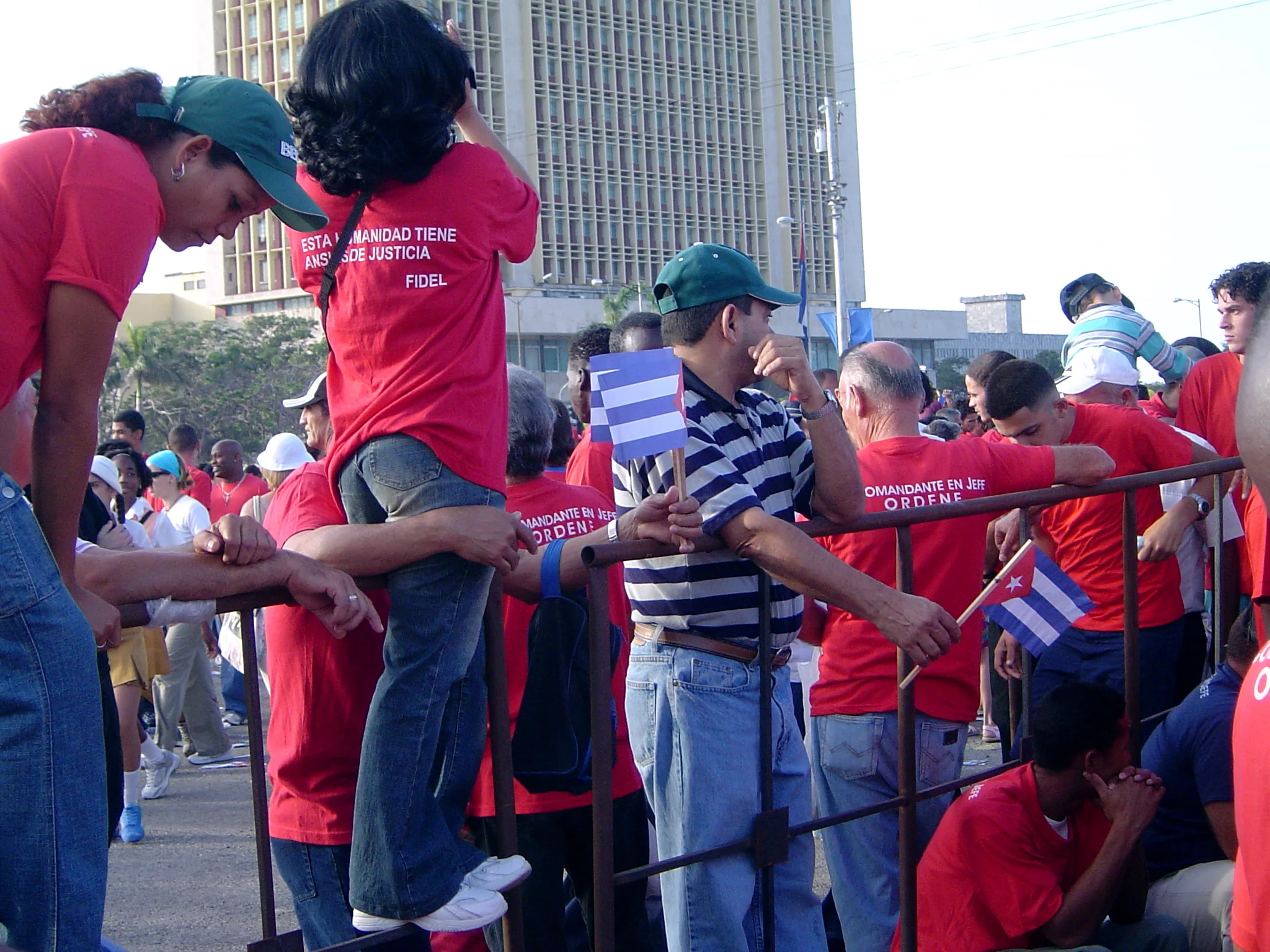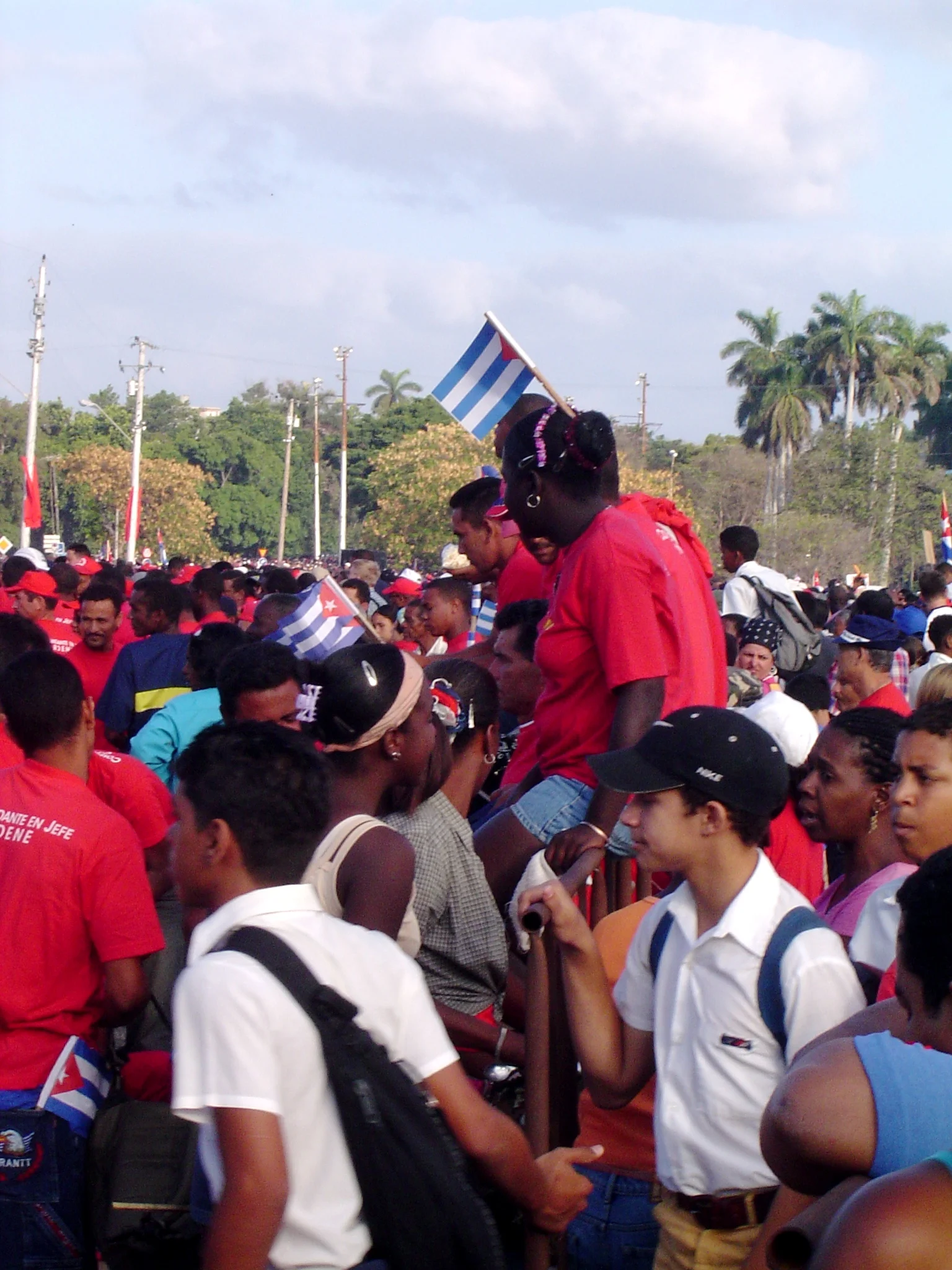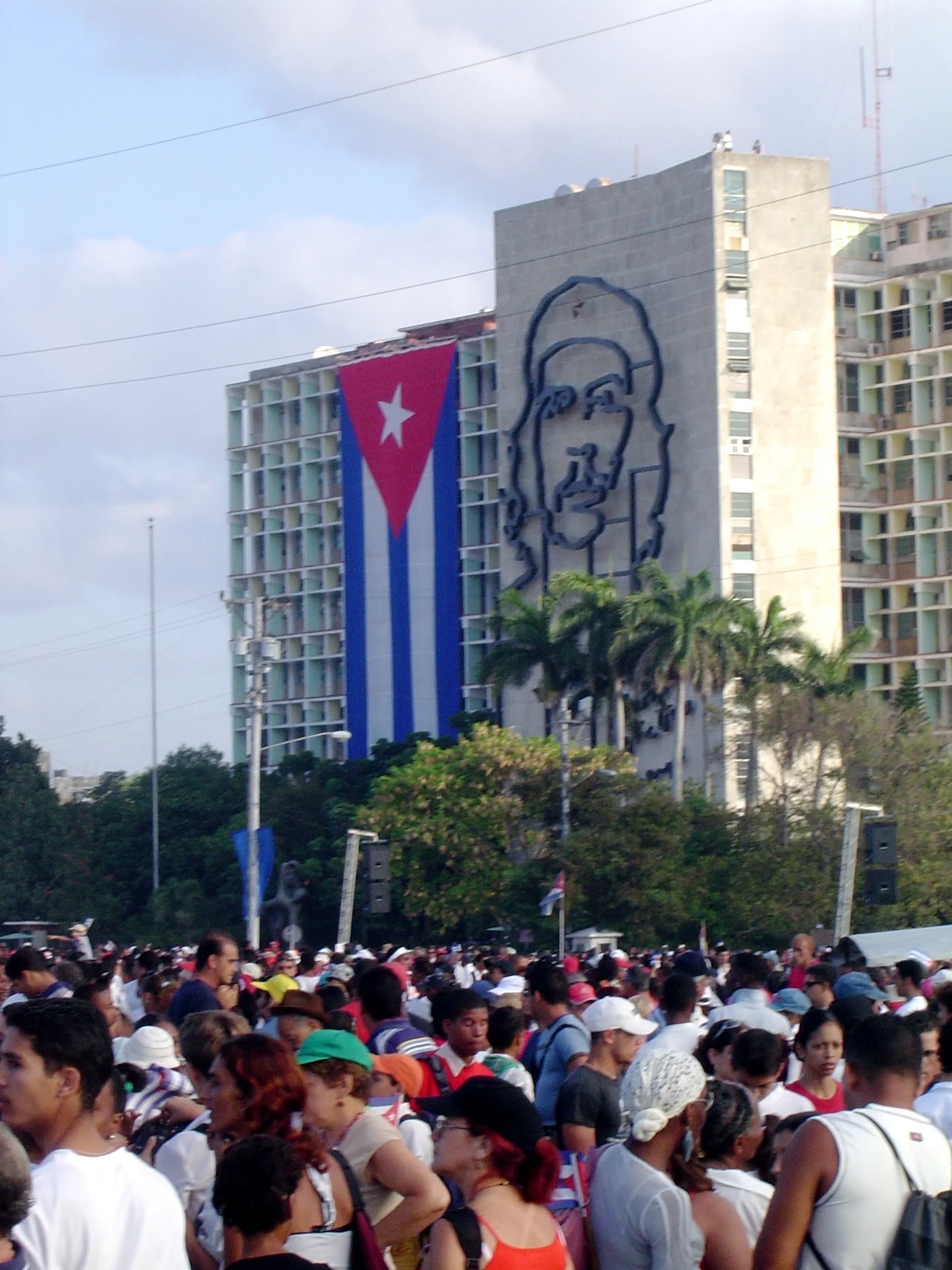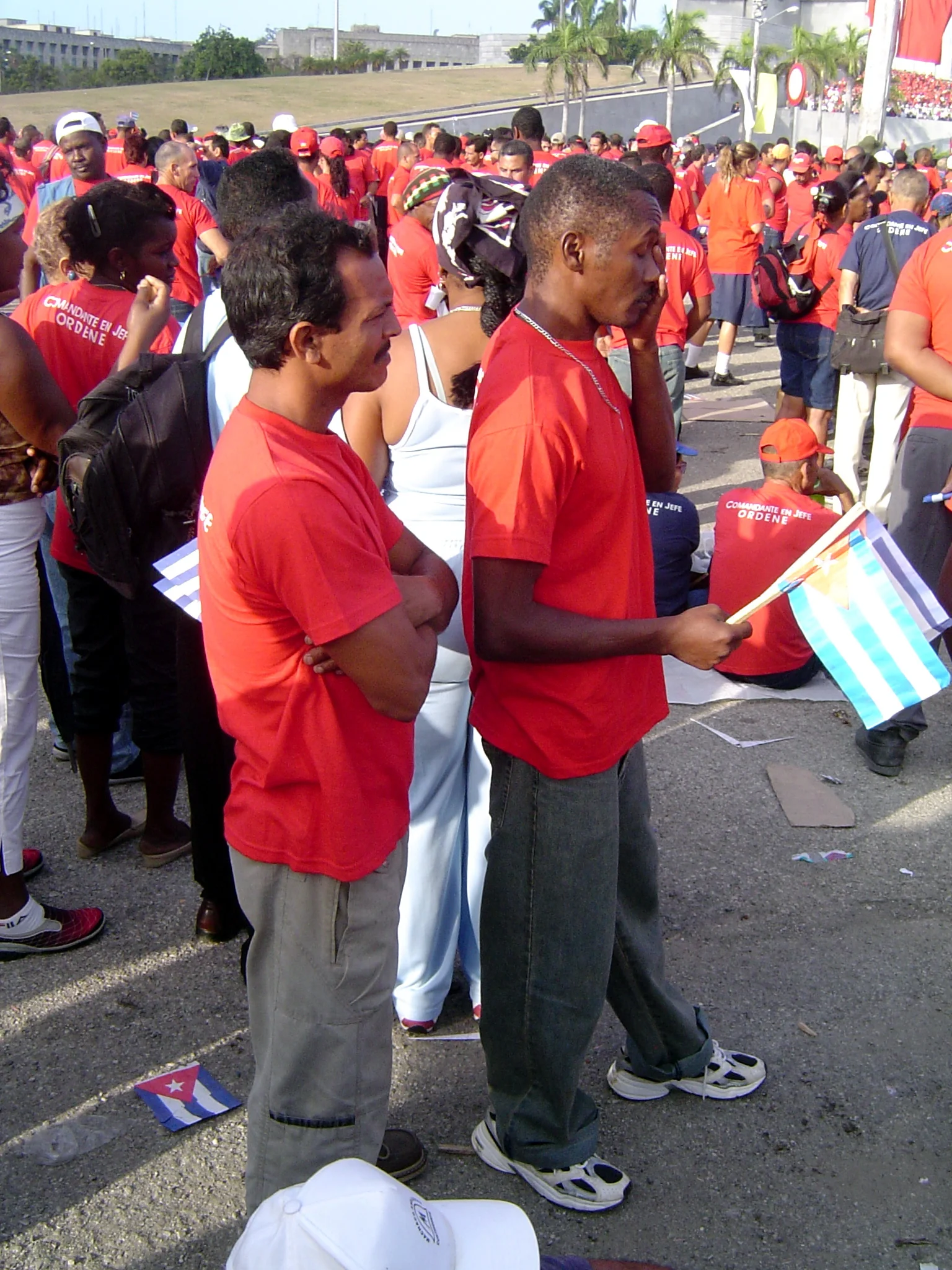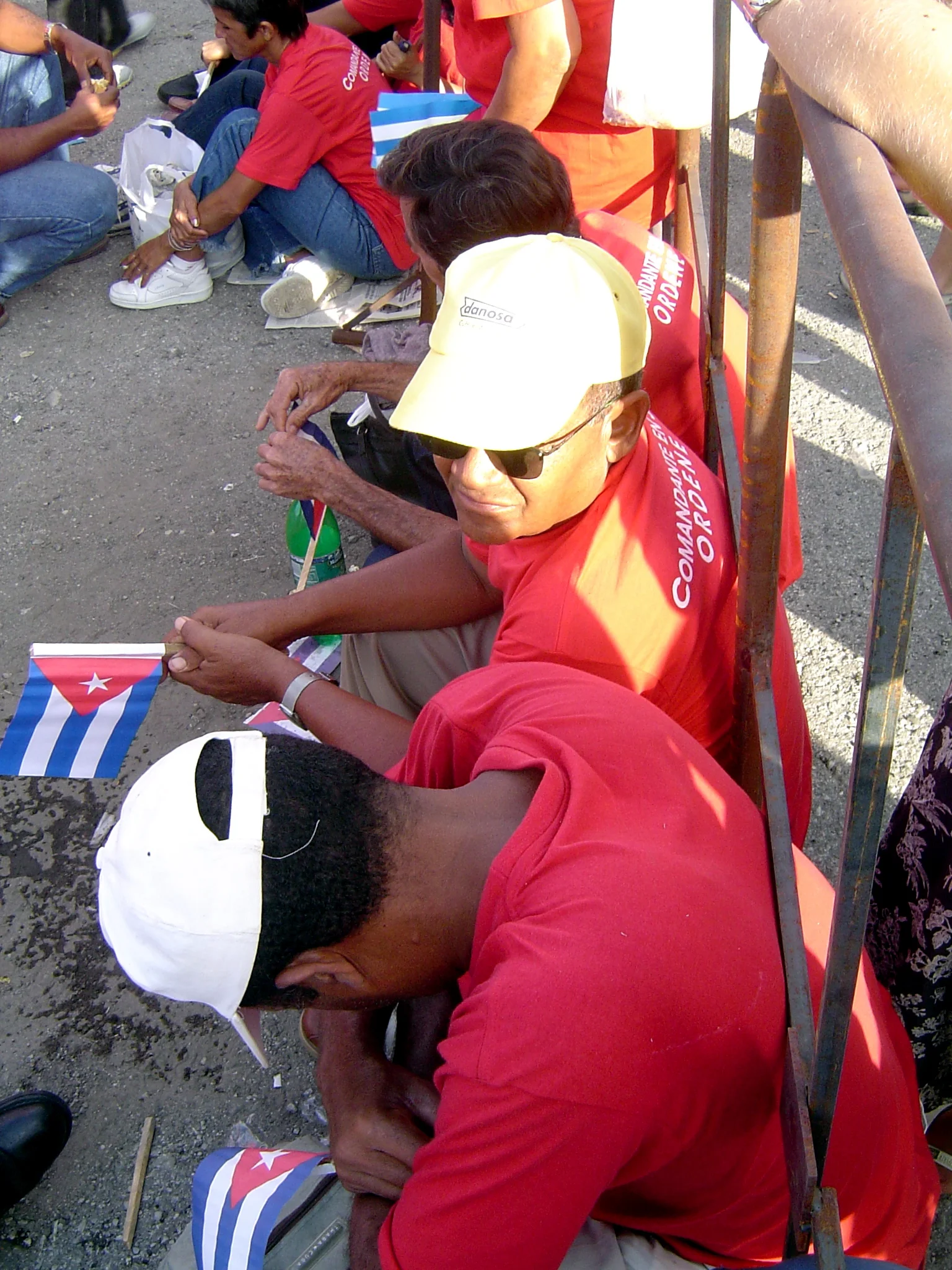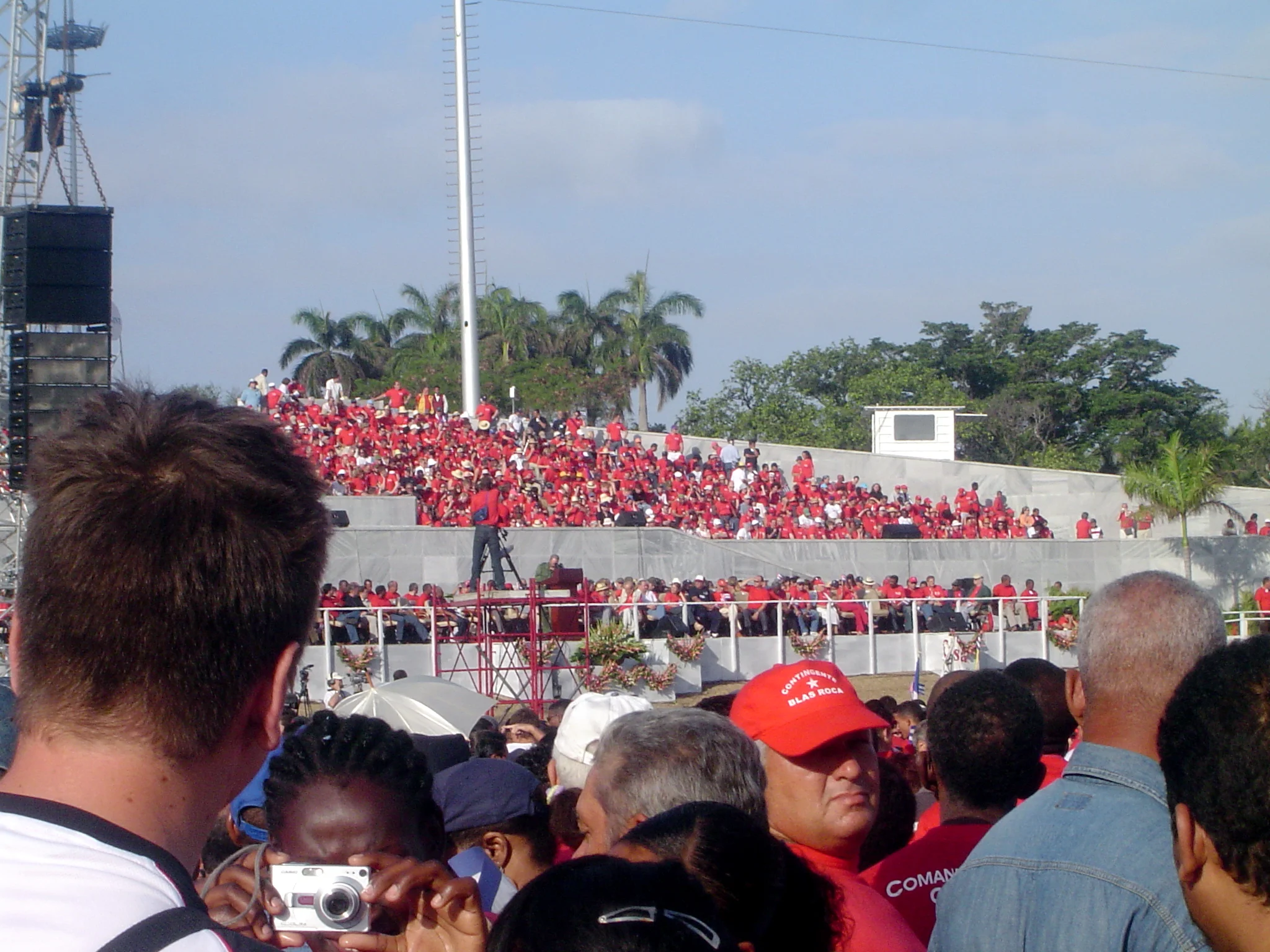Castro's Downfall (part 4):
Día de los Trabajadores
1st May 2006. Beep-beep-beep-beep. Fidel Castro’s alarm sounds at 4:30am as it has done for the last 47 years. He yawns and reaches for the glass of water on his bedside table to rectify his dry mouth, then pushes himself into a seated position and rests his head against the mahogany headboard. The branches of a palma royale sway outside his bedroom window and the gentle buzz of a zunzuncito - hovering at the feeder he keeps on his balcony - draws a contented sigh from the great dictator’s mouth.
“Que vida,” he mutters as he strokes his wispy silver beard.
Fidel looks over to the photos of Hugo Chávez on the night table and caresses the silver frame with his fingers. He shuts his eyes and sentimentaly remembers his Venezuelan protégé’s infectious laugh.
Knock-knock. Fidel’s moment of serenity is short lived.
“What do you want?” he says irritated as his younger brother Raúl enters the master bedroom with a tray of huevos revueltos, a glass of jugo de naranja and a steaming cafecito.
“Perdoname,” stammers the younger Castro. “It’s just…Have you finished your speech for today?”
Raúl apologetically approaches the four-poster bed and leaves the tray at the end where Fidel’s calloused feet poke out from under the satin sheets.
“Of course,” snaps the Beard. He leans over to the bedside table and waves a thick document at Raúl.
“Timed to the minute.”
“Will it be…Shorter this year?”
“I’ve taken your advice. It’s timed in at three hours - fifty-five minutes.”
Raúl sighs.
“Very well, hermano.”
The younger brother forces a smile and backs towards the open door.
“I’ll leave you to get ready.”
“Hold on. Hold on,” barks Fidel, eying his brother suspiciously.
“Brother?”
“You’re forgetting something?” says the Beard, beckoning his simple brother back to the bed. Fidel points at the tray.
“Go on,” he says. Fidel folds his arms, waiting.
“Must I?”
Fidel raises a bushy eyebrow and Raúl reaches for the fork next to the plate. He stabs a piece of the scrambled eggs and puts it in his mouth, chewing reluctantly. Next he sips from the orange juice; then the coffee. All the while Fidel studies his brother’s face.
“Abre la boca,” demands the Cuban leader.
Raúl opens his mouth to show all the food was swallowed and Fidel leans forward, squinting to check it’s clear.
“Nada?”
“Nada,” says Raúl, stepping close to his big brother as though about to swallow him whole.
The leader of the revolution times thirty seconds on his watch. Enough time, he reasoned, for any poison to take effect.
“Bien, hermano. Y sientes bien?”
Raúl rubs his stomach to signal no poison-like pains developing in his stomach. Pleasingly, his brother’s stern gaze relaxes, satisfied.
“Can I go now?” says Raúl, impatient to leave.
Fidel leans back to the night table for his wire-framed glasses and fixes them on his impressive nose. A disapproving look returns to his face and the heir to the Cuban dictatorship catches the glint in his brother’s face and flushes red; Raúl claps a hand to cover his cheek.
“Sí. Sí.”
Fidel waves his arthritic fingers to dismiss the younger Castro and Raúl turns on his heels. As the younger brother reaches the door, however, the Beard clears his throat. Mierda, mouths Raúl. He stares at the painting of Jose Martí which decorates the hallway outside of his brother’s bedroom and steadies himself.
“Yes, brother?” says Raúl petulantly at last.
Fidel taps his face. “I hope you’re not thinking of growing that? We’ve been through this before. I’m the one with the beard. Me. You get the moustache.”
“But…”
Raúl hangs his head.
“A la orden, comandante,” he mumbles. Then disappears.
Fidel grabs the breakfast tray and drains the coffee and juice, then makes short work of the eggs. After showering, he crosses the bedroom with the towel wrapped untidily around his waist, water dripping from his dishevelled torso like rainwater off a craggy cliff. The soft purr of the hummingbird draws him to the balcony and he can’t resist stepping out to enjoy the view; at the rising activity of his henchmen as they get to work at his enclave at Punto Cero. He lifts both arms to the sky to enjoy the pleasing morning zephyr fanning him dry and doesn’t flinch when the towel loosens and drops to the floor. It was nothing they hadn’t seen before, thinks Fidel as he waves to Raúl who is scurrying across the courtyard with a straight razor in his hand. At peace with the world, Fidel then folds the Cuban-flag Adidas tracksuit which he’d let to dry on the balcony and returns to the bedroom.
“What to wear? What to wear?” he mutters.
The unclad Fidel shuffles over to the wardrobe, swinging the doors open and drumming the sides with his fingers. Then he laughs at his own joke and pulls out a freshly pressed olive green military uniform and shining combat boots.
Don’t panic!: Fidel first banned his younger brother from growing a full beard in the foothills of the Sierra Maestra, shortly after landing their yacht, the Granma. Fellow revolutionaries Camilo Cienfuegos and Ché Guevara already had beards and Fidel reasoned a fourth would be overkill. Raúl seethed all those years, as evidenced in this photo from a military parade in 1971.
While it’s open to debate, Fidel’s morning on el día de los trabajadores no doubt occurred more or less as outlined above. [1] Over in Vedado meanwhile, we were also readying ourselves to march from the Univerity of Havana to the Plaza de la Revolucion - minus the army fatigues.
On our second day back in Havana the hapless Danes had spent most of the day at the Air France office in Miramar, over in west Havana, attempting to bring the date of their return to Denmark closer by a few days. They’d lost, you’ll recall, all their money in a diabolical street scam on day one; ever since they were running on fumes - spending the paltry sums left in their bank accounts only because they rested their hopes on their travel insurance to reimburse their swindled krone.
The Norwegians and I waited for them on the terrace bar of Hotel Colina. By now I was tired of the three women. They were self obsessed, vain, and totally uninterested whenever I opened my journal to thoughtfully jot down a few well observed notes that encapsulated succinctly the Cuban psyche. No matter how much I tapped the Bic biro against my teeth or muttered things such as “…of course, the Cuban Revolution is both good and bad…” it was never enough to distract them from ordering another mojito and giving the eye to the waiters, who, uniquely for Cuba, hovered diligently near our table. So when the Danes returned, glum-faced and dejected - I greeted them with perhaps more gusto than necessary.
“At fucking last,” I cheered as they noisily dragged a chair each to our table and sat down.
I shouted them a bottle of Cristal [2] and admired the way they passed the bottle between each other as they forlornly outlined their pitiful day. Air France would not bring their flights forward unless they coughed up around USD700 each. They did not have that kind of money; therefore, as far as they were concerned, they were screwed. The Norwegians murmured insincere platitudes in response; Ida rolled her eyes in disbelief. [3]
I felt so sorry for them that I very nearly offered to help them out, but at that precise moment a young Cuban chap waved at the two Danes and bounded happily over to shake their hands. My moment of weakness passed. Staggeringly I soon learned they had ignored the coaching I gave them in Trinidad [4], not to mention their recent experience, by befriending another local after we’d all sauntered off to bed the night before. Now I felt more sorry for the this poor Cuban jinatero - if only he’d met Kristian and Martin two weeks before he’d have hit the jackpot.
“Kristian, I thought I told you not to talk to anyone without me around?” I hissed.
“Don’t worry,” he whispered back, “Pablo already knows we don’t have any money. We told him.”
I eyed the young man suspiciously. Pablo was a student at la Universidad de la Habana, situated across the road from Hotel Colina. We soon learned that Pablo had invited the Danes - and us - to a party in the quadrangle of the university that night. It was tradition for the university’s students to party all through the night of 30th April until the early hours of the next day, and then march en masse to Plaza de la Revolucion. It seemed fanciful and no doubt a diabolical ruse, but the Danes were smitten.
I had no choice but to go with it.
Having partied all night then we marched the two kilometre route from the university to the Plaza de la Revolucion, rummed up and bleary eyed, ready to listen to the great man’s sermon. It was the Cuban equivalent of turning up drunk to midnight mass.
What would Pablo and his fellow undergraduates think if they learned this was to be Fidel’s last big speech; that in just a little over a month from now the Beard would be taken ill and have to relinquish power to his younger brother? Would Pablo put the pieces together and realise it was too much of a coincidence? That the one big difference between this Workers Day and all the others was the presence of Carlitos de Jeffers? [5]
The Cuban government’s official excuse was intestinal bleeding and that his eventual death was the result of diverticulitis. Modesty prevents me from divulging the full details. But as Pablo recollects on those sleepless nights (see footnote 5) he probably remembers the moment I did reappear. He’d have remembered how I was wiping rum-scented vomit from my mouth and how I’d told the Danes, the Norwegians and our new Cuban chums that I’d just spent one hour hurling my guts up into a begonia bush; how I appeared to be severely dehydrated and disorientated; and how my eyes were bloodshot; how my speech was slurred; and how I splattered Ida, Kamilla and Silje’s feet with sick after I yodelled up a fresh batch of chunder right there in the middle of the plaza - an amount that surprised even me.
There will obviously be doubters out there who fancy my recounting of this tale is balderdash. Perhaps you’re one of them. If so just ask yourself this: isn’t it just a little convenient that Fidel lived all his life without falling ill, but then, at the age of 80 years-old suddenly succumbs to intestinal bleeding at the same time Carlitos de Jeffers turns up on the island?
[1] At the very least, Raúl must have been fearful his life was in danger now that Fidel had noticed the beard he was trying to grow.
[2] My budget could probably have stretched to one each but it was better to be safe than sorry.
[3] Ida gave every impression her bafflement was less at Air France’s lack of compassion and more annoyance that she was hanging out with poor people.
[4] The essence of which was: Trust no one.
[5] No doubt in the ensuing years he’s woken up in a cold sweat as the truth slowly revealed itself - not unlike the ending to The Usual Suspects. Flashbacks to how he met the Danes - for their meeting seemed so casual at the time. Yet gradually he’ll work his way back: There was that traveller muy misteriousa who oozed cool and assuredness, he’ll remember. Como se llama? Ah, that’s right: se llama the Glorified Gypsy but the Danes called him “Glory” out of respect. And then other memories will come back: he’ll sit up in bed and try to place that enigmatic traveller at the Plaza de la Revolucion once Fidel’s speech was underway. Hijueputa! he’ll exclaim as it dawns on him at last - that the Glorified Gypsy wasn’t there at the time of the speech - not all of it anyway. He didn’t appear until…

